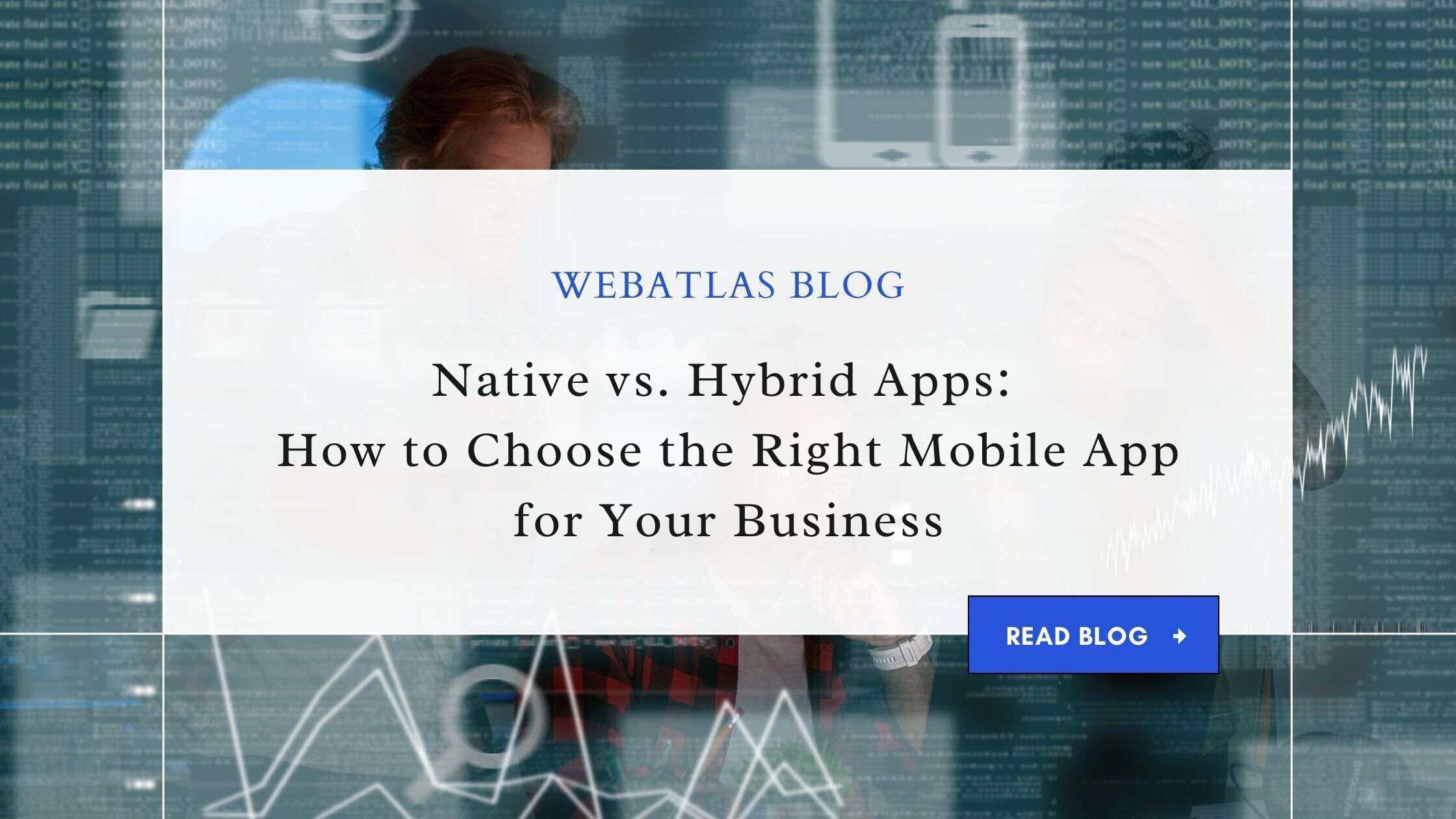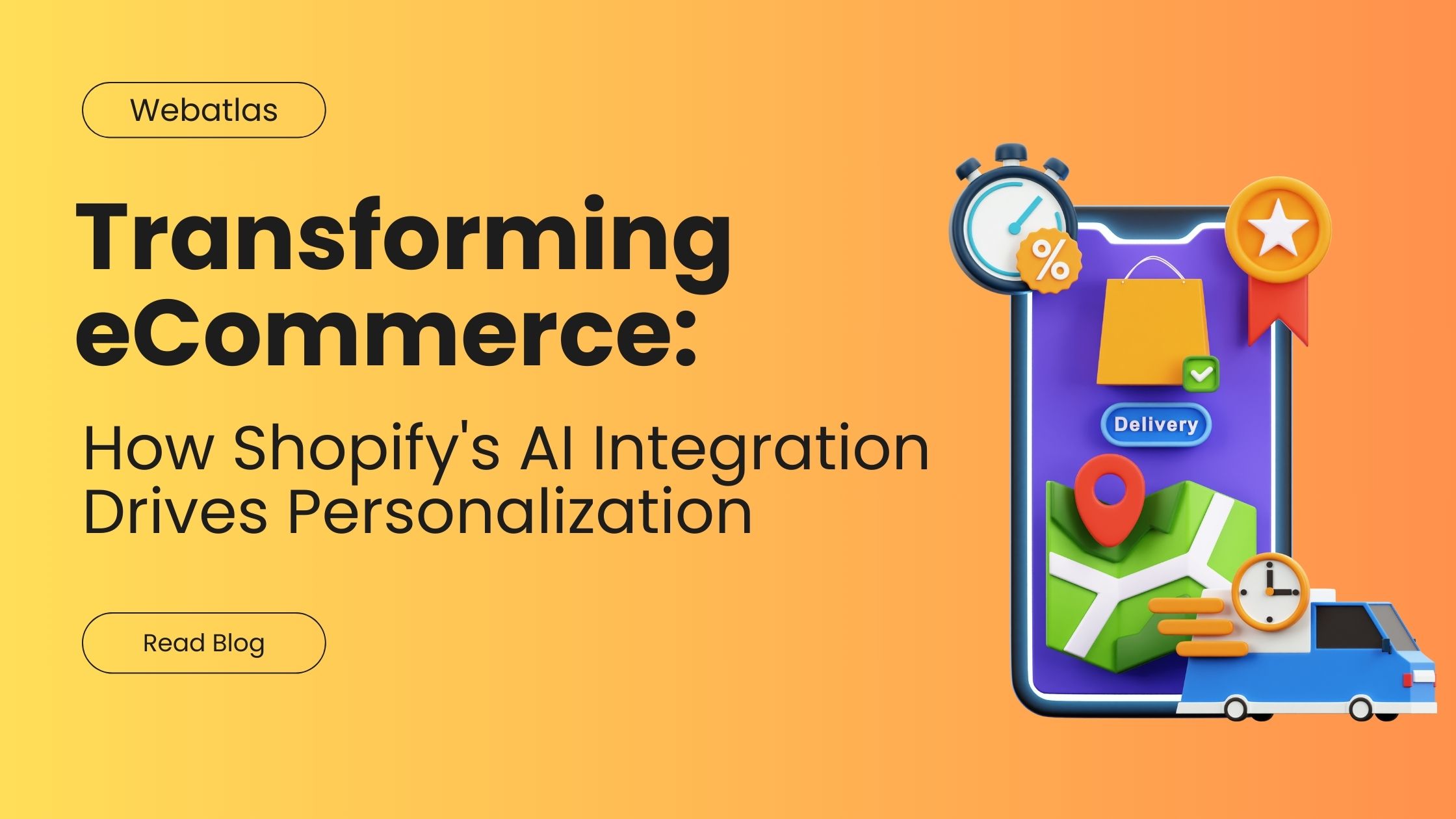Native vs. Hybrid Apps: Which is Best for Your Business?

In the rapidly evolving world of mobile app development, one of the first crucial decisions businesses face is whether to build a native or hybrid app. This choice significantly impacts everything from performance and user experience to development costs and time-to-market. Understanding the differences between these two approaches can help you make an informed decision tailored to your business needs.
In this article, we’ll break down the key distinctions between native and hybrid apps, explore their pros and cons, and help you decide which one is best for your specific goals. We’ll also highlight how Webatlas, a leading mobile app development company, can assist in building high-performing, scalable apps to meet your business objectives.
Understanding Native Apps
What Are Native Apps?
Native apps are applications built specifically for one platform—either Android or iOS. Developers use platform-specific programming languages and tools, such as Swift or Objective-C for iOS apps, and Java or Kotlin for Android apps. These apps are tailored to the platform, offering the best possible performance and integration with device features.
Advantages of Native Apps
- Optimal Performance: Native apps deliver superior performance because they are built specifically for a given platform. This allows the app to run faster, utilize device-specific features efficiently, and ensure smooth operation, particularly for resource-intensive apps like games or complex utilities.
- Enhanced User Experience (UX): Because native apps are designed in alignment with the platform’s guidelines, they offer a more intuitive and seamless user experience. The UI components match the operating system, making it familiar and easy for users to navigate.
- Access to Device Features: Native apps have full access to device hardware and software features, such as GPS, camera, microphone, and sensors. This integration is crucial for apps that rely heavily on device functionalities, such as navigation apps, fitness trackers, or augmented reality applications.
- App Store Visibility and Support: Since native apps are built specifically for their respective platforms, they generally perform better in app store rankings. Additionally, both Google Play and Apple App Store prioritize native apps when it comes to updates and new features.
Disadvantages of Native Apps
- Higher Development Costs: Building a native app for both Android and iOS requires separate development efforts, which can be costly. You’ll need two development teams, one for each platform, leading to increased expenses for design, development, and maintenance.
- Longer Development Time: Because native apps require separate coding for each platform, development time can be longer compared to hybrid apps, especially if your project has a tight deadline.
Understanding Hybrid Apps
What Are Hybrid Apps?
Hybrid apps are built using web technologies like HTML5, CSS, and JavaScript and are encapsulated in a native shell. Essentially, they are web apps wrapped in a native container, allowing them to be deployed across multiple platforms (iOS, Android) with a single codebase. Popular frameworks for hybrid app development include React Native, Flutter, and Ionic.
Advantages of Hybrid Apps
- Cross-Platform Compatibility: The most significant advantage of hybrid apps is their ability to work on multiple platforms. With a single codebase, developers can create apps that run on both Android and iOS, dramatically reducing development time and costs.
- Faster Time-to-Market: Since hybrid apps use one codebase for all platforms, they can be developed and deployed faster. This is ideal for businesses looking to launch their app quickly across multiple platforms without waiting for separate Android and iOS versions.
- Cost-Effective: Hybrid app development is more affordable than native development because you only need to build the app once and deploy it everywhere. This is particularly beneficial for startups and small businesses with limited budgets.
- Easier Maintenance: Maintaining a hybrid app is more straightforward since you only need to update a single codebase. This reduces complexity, time, and costs for app updates and bug fixes.
Disadvantages of Hybrid Apps
- Performance Limitations: Hybrid apps may not perform as smoothly as native apps, particularly in scenarios where high performance and advanced functionalities are required. The reliance on web views and limited access to device features can slow down performance.
- Limited Access to Native APIs: Hybrid apps don’t have full access to all native features and APIs of the device, which can be a dealbreaker for apps requiring deep integration with device functionalities like GPS, camera, or sensors.
- Compromised User Experience: The user experience in hybrid apps may not feel as “native” as apps built specifically for a particular platform. There could be slight discrepancies in the interface or navigation that users of iOS or Android might find unfamiliar or unintuitive.
Native vs. Hybrid: Key Differences
Here’s a quick comparison table that outlines the key differences between native and hybrid apps:
| Factor | Native Apps | Hybrid Apps |
|---|---|---|
| Performance | Superior, platform-optimized performance | Adequate, but can lag in complex scenarios |
| User Experience | Native look and feel, smooth interactions | Compromised UX, not fully platform-native |
| Development Cost | Higher, separate for each platform | Lower, single codebase across platforms |
| Development Time | Longer, requires platform-specific coding | Faster, simultaneous deployment for platforms |
| Access to Device APIs | Full access to all platform APIs | Limited access to some native APIs |
| Maintenance | More complex, separate updates per platform | Easier, one codebase to maintain |
Which is Best for Your Business?
The choice between native and hybrid app development ultimately depends on your business objectives, target audience, budget, and the complexity of the app.
When to Choose Native Apps
- High Performance: If your app requires high performance, such as a mobile game, or involves intensive processes, such as video streaming or AR/VR features, native apps are the way to go.
- Superior User Experience: If providing a superior, platform-specific user experience is critical to your app’s success, native development will ensure a seamless interface and smooth interactions.
- Full Device Integration: Native apps are best if your app relies heavily on device features like the camera, GPS, and sensors. Industries like healthcare, gaming, and fitness often opt for native apps for this reason.
When to Choose Hybrid Apps
- Cost Efficiency: If you’re on a tight budget and need to launch the app across multiple platforms quickly, hybrid apps offer a cost-effective solution.
- Faster Launch: For startups or businesses looking to quickly test their product in the market, hybrid apps provide a quicker time-to-market while maintaining cross-platform compatibility.
- Simple Applications: If your app does not require complex functionalities or deep device integration, hybrid apps will work efficiently and at a lower cost.
How Webatlas Can Help with Your Mobile App Development
At Webatlas, we understand that each business has unique needs when it comes to mobile app development. With years of experience in offering mobile app development services, we excel in creating both native and hybrid apps tailored to your specific business objectives.
As a mobile app development company, we specialize in designing high-performance native apps for Android and iOS, ensuring top-notch user experiences. We also offer web development services and product development for businesses that prefer the cost-efficient and time-saving benefits of hybrid apps.
Our expert team is skilled in using the latest frameworks, such as Flutter, React Native, and Swift, ensuring that your app, whether native or hybrid, is built to scale, perform, and succeed in today’s competitive market. From initial consultation to post-launch support, we provide end-to-end services that ensure your mobile app achieves your business goals.
Conclusion
Deciding between native and hybrid app development depends on the specific needs of your business. Native apps offer unparalleled performance and user experience, while hybrid apps provide a faster and more cost-efficient route to market. By understanding the trade-offs between the two, you can make an informed choice.
If you’re looking to build a robust mobile app, consider partnering with Webatlas, a trusted mobile app development company. With a track record of successful projects, we offer comprehensive web development services and product development to help you bring your app vision to life.
Recent Post
Let's talk about your project, or just come and say hello!
Webatlas Technologies is the fastest growing web and mobile app development company



